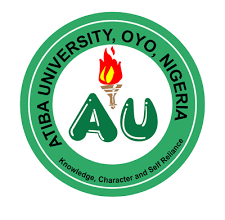
How to become a lecturer in Nigeria: Do you enjoy teaching? Are you a Nigerian undergraduate thinking about a career choice; are you a fresh graduate that is not sure of what to do in order to become a lecturer? Or a professional who is thinking about changing career to lecturing? If your answer to one of the above questions is yes, then continue reading.
Teaching or lecturing offers opportunities to design a course; develop a unique teaching style; share your ideas with students and receive feedback; influence young people. You can be a mentor: you can make a real difference in the world. Lecturing can be a very satisfying and rewarding experience; so if you are thinking of starting a career in Academics and you don’t seem to know how to become a lecturer, then this interesting guide is for you
👉 Relocate to Canada Today!
Live, Study and Work in Canada. No Payment is Required! Hurry Now click here to Apply >> Immigrate to Canada
Who is a lecturer?
A lecturer is a person who gives lectures, especially as an occupation at a university, Polytechnic, Mono-technic or college of higher education. A lecturer in this context is an academic who teaches, conducts research, and leads research groups.
Fact: There are so many graduates in Nigeria but very few are interested in teaching or lecturing jobs, there are so many knowledgeable scholars who are looking forward to becoming a lecture but don’t know how or where to start. The truth is lecturers earn a lot of money through teaching, research, and grants.
Lecturers can also freelance in other institutions on part time basis which make lecturing a good and lucrative job for people with the passion, knowledge and skills required for the job.
So, how do I become a lecturer in Nigeria?
Practical steps you can take to be come a lecturer in Nigeria
Step 1:Check the requirement:
For any job in the Nigerian labour market, there is always a requirement, so it is advisable to take quality time to research and check the requirements needed to become a lecturer in the type of institution of your choice.
However, Master’s degree is required for university level Assistant Lecturer. After PhD, the appointment starts with Lecturer, then gradually Associate Professor and Professor depending on research/teaching experience. Beside these, professor of Emeritus is given to extraordinary professor after their retirement
Step 2:Acquire the Qualifications needed
Take reasonable steps to acquire the qualifications needed to become a lecturer. You have to be a graduate with a very good first degree grade and must have studied the course you are interested in teaching. Also, a qualification in education may be required, so if you do not possess one then you should enroll to acquire one, most advisable a postgraduate diploma in education.
👉 Relocate to Canada Today!
Live, Study and Work in Canada. No Payment is Required! Hurry Now click here to Apply >> Immigrate to CanadaIf you are particular about lecturing in a Nigerian university, then a master’s degree is a must have for you and if you really want to get a good start on the career, then a PhD is a fantastic place to start.
Step 3: write your cv/resume:
Gather every resource needed to put together a good academic CV as this is required in applying for the job of your choice. Good Academic CVs are focused on educational achievements and knowledge and are used when applying for lecturing or research-based roles.
Although there’s no page limit, it’s important to keep your CV concise and targeted to the role’s requirements, with each section in reverse chronological order. Your qualifications, academic achievements, research interests and skills should be shown on the first page. Ensure that your writing style is scholarly but clearly understood to those outside your field of interest.
Include details of your research outcomes, potential future developments, and any funding, scholarships or awards that you’ve received, conferences that you’ve attended, professional memberships that you’ve gained and publications that you’ve been featured in. check out how to write a great resume
Step 4: Finding jobs
Having written a good resume, it is time to shoot and hunt for the job of dream! Take quality time to search for openings by using your contacts in the academic field. Another way is that openings may be advertised on the internet via university websites and other Nigerian job platforms like; hotnigerianjobs, jobberman, justjobng etc. Print media like the newspapers and school magazines are also reliable places to get information.
Moreover, You may also need to go the extra mile by sending applications to institutions that didn’t advertise for positions and as well reach out to schools in persons and meet with lecturers in your field of study to make enquiry about openings.
Step 5: Making job Application:
When applying for a lecturing job in Nigeria, you may be required to submit or fill application forms, send copies of resume, some may require up to twenty (20) typewritten copies, and you may also get a chance to write a cover letter, in an event of getting a chance to write one, ensure you highlight your strength, skills, motivations and what you can offer to increase your chance of getting shortlisted. You may also be required to submit referees so be prepared to produce written references, you may require two (2) or more.
A good and strong written cover letter and strict adherence to the instruction on the advertisement will also increase your chance of getting called up for an interview.
Step 6: Interview and assessment:
After a successful application, and you have been shortlisted for a lecturing job interview. It is essential that you prepare for interview, immediately you get an invite for an interview; make reasonable effort towards researching the institution, the department and the position which you are being interviewed for.
Ensure to make presentation if need be, review your previous research works and knowledge as well. This coupled with the awareness of your strength and weakness will enable you to answer sensitive questions about the positions successfully and with confidence.
See: interview preparation tips
Practice and prepare for common interview questions like: tell us about yourself, why do you want this role? What do you know about the institution? Etc. while there are other questions you might not have practiced, however quality preparation and practice will help you to ace these questions.
On the day of the interview for your dream lecturing position, be sure to make a good first impression by appearing in a neat corporate outfit, a black suit for men and black gown or suit for women will not be a bad idea. This will show that you are smart and professional.
Lecturing job interview is always a panel interview with at least ten (10) interviewers, if possible research and get information about those that will be on the interview panel. At the interviews make sure you answer every interview question with a smile and confidence, be aware of the person asking you a particular question as you wouldn’t want to be discussing an in-depth definition of Laplace transform or yeast fermentation with a professor of Linguistics who is on the panel.
You may also get a chance to interact with staffs of the departments you are applying to and may be asked to give feedback about the interview and the academic environment, in all be polite and professional.
In conclusion, the steps to becoming a lecturer in Nigeria is as state but not limited to the above. However, if you can follow this few steps as stated you can be sure to become a lecturer in Nigeria in the nearest future.







